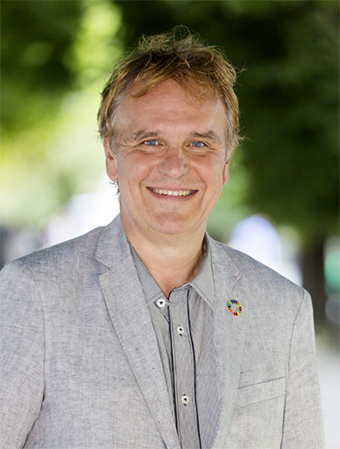By Alain Coheur, Vice-president of Social Economy Europe (SEE) and member of the European Economic and Social Committee (EESC)
The historical momentum that the Social Economy is going through is the result of more than a decade of advocacy and work by women and men in the SE to obtain a long overdue recognition at European and international level. This recognition is very concrete in many countries, but it is also unequal; local, regional and national policies have not yet acquired all the mechanisms necessary for the implementation of the SE ecosystem. These dynamics, with their different human, legislative, financial and economic dimensions, allow the debate on SE to progress but require, on our part, more and more resources to maintain a high level of advocacy at both political and technical levels.
SE has its place in all societal transitions, but it is also a historical and current driver of these transformations. In a world that today is more than ever in search of new points of reference, more centred on people, more sensitive to environmental issues that condition both the future of the planet and the future of the human species, our responsibility is engaged.
Today, as in the past, we have demonstrated our relevance, our solutions and our innovations. We have withstood crises of all kinds! We know that our mode of organisation and governance is not only efficient but also beneficial for the citizen, the economy and society. Even if we still need to progress to make it known.
The European and international agenda is a historic opportunity to have the strengths of our model recognised and after more than two centuries of existence, we can no longer be considered as an epiphenomenon or an accident in the history of capitalism. We are the bearer of a universal social and economic project!
The international or European organisations of the social economy, as efficient as they are, cannot respond individually to the growing demand for knowledge, training, expertise, and support for the development of enterprises in the economy, which have been created in particular under the impulse of the ILO, the OECD and soon the United Nations.
We must reap the fruits of our investments, we cannot let consultancies come and occupy a space that belongs to us, and for this, our organisations will have to work together more than ever, or even come together to form entities capable of responding to the growth of social economy enterprises.
The path is already marked out for the next 18 months: the GSEF world meeting in May in Dakar, the Council recommendations planned for the spring, the Spanish presidency conference in San Sebastian on 13 and 14 November, the Belgian presidency conference in Liège on 15 and 16 February 2024 and, not least, I hope, the United Nations Resolution for which we must be very vigilant about the content that will be proposed by the governments, we must be part of this ultimate international construction in favour of the social economy.







